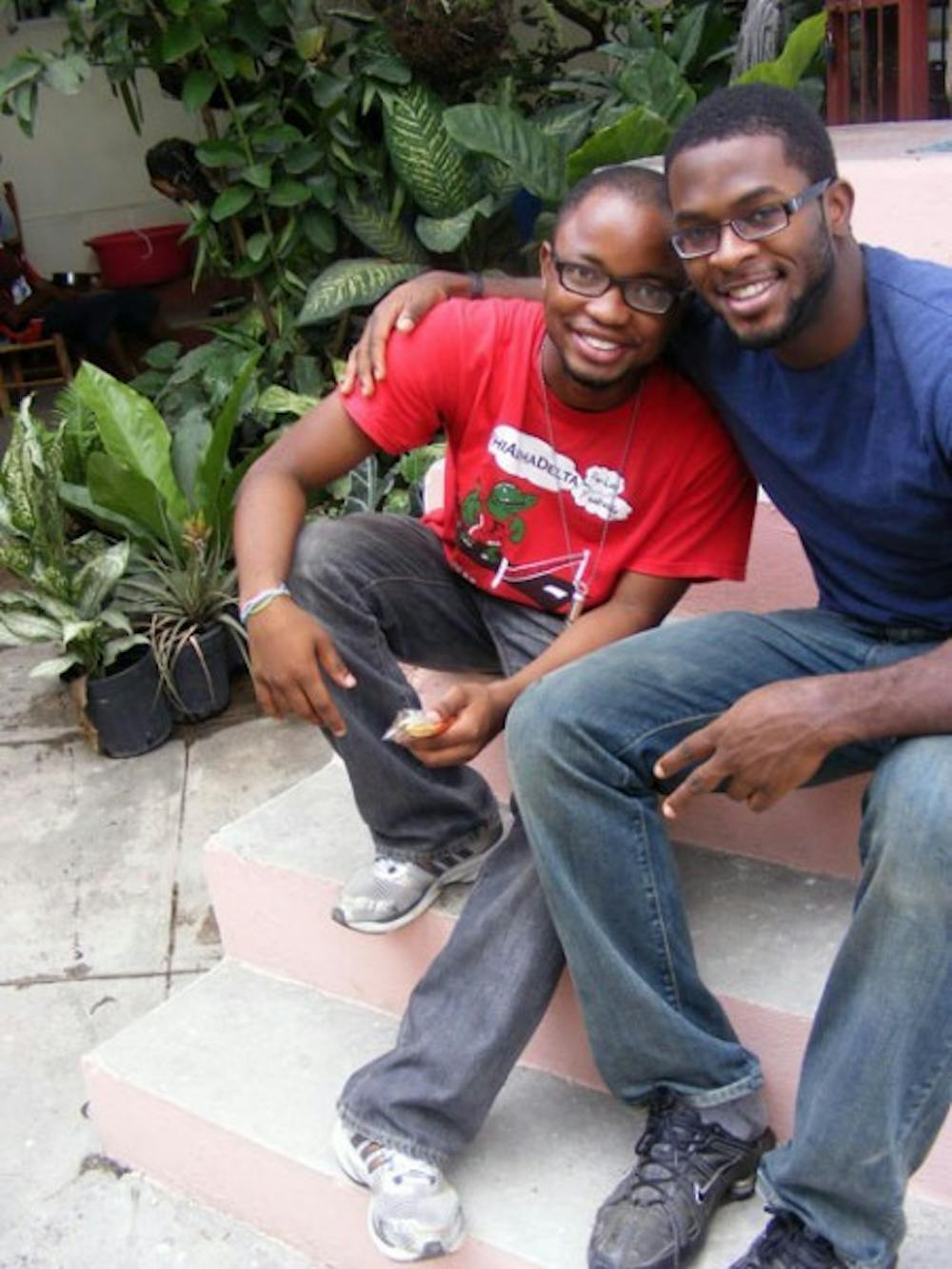Editor's note: This is the third installment of a four-part series. To read other parts of this story, please click the links below.
Beaten but Never Broken
When a country has been subjected to a never-ending onslaught of poverty, natural disasters, famines and failed regimes, some argue that God chooses to conveniently get lost. In Haiti, it took Georges only a day to find Him.
For the village of Meilleur, a community 45 minutes outside of Port-au-Prince, Sunday is not just a day of holy obligation; it's a day to celebrate life. Young children, who on any other day would be running in the streets with either no shirt or no pants, come to church wearing sharp black suits. Some fit, but most don't.
This - any other day a glorified wooden pavilion - is God's house.
"God is there as hope," Georges recalled. "He's the certainty that things will change."
After the service, the Americans make the long journey by covered caravan into the capital city for a tour of the presidential palace. While the buildings grow taller as the caravan rumbles toward its destination, rows of overflowing tents and fallen houses pancaked on top of each other betray any appearance of metropolitan life.
In the distance, a tall Haitian flag billows in the breeze, the embodiment of a faulty system of Haitian government juxtaposed with a symbol of national pride that, with every whip of the wind, reverberates a heartbeat.
As Georges and Dumaine make their way around the premises, they are approached by two professional beggars who poke and prod for change. Despite previous instructions, they cave in, giving them mints and whatever else jingles in their pockets. After witnessing this, Pastor Samuel Lucien, an indigenous Haitian who accompanies the Americans, pulls the two aside.
"We're not wanting money," the pastor says. "We want development. You need to invest in us so the Haitian people can be self-sustaining."
For the American travelers, these next four days will be all about investment. Aside from providing Haitians with basic humanitarian needs, they will also train teachers to better educate students, instruct natives on the nuances of business in an effort to jump-start a morbid economy and provide spiritual formation and guidance that will help them confront these tall tasks.
While teaching methods and micro-loans can only go so far in a short time, the Haitians' confidence is far more advanced than any technology, especially among the youth.
"Here's a group of people who have had every hardship thrown their way and they're still laughing, still telling jokes," Dumaine said. "That says something about the Haitian people."
But behind the smiles are stories that no punchline can undo.
There's the one about the girl who, during the earthquake, ran aimlessly with her eyes shut, hoping to be spared from a grave of drywall and concrete. It was when she opened her eyes that she noticed she was covered in debris and drops of blood from other bodies.
But for the children, these are stories from the past. Their focus is now on building a "new" Haiti. Instead of throwing around words such as "rich," "wealth" and "power," they talk, always in terms of "we," about a country with a sanitation system that will clean up the garbage swelling in the streets, a water supply free of E. coli and bacteria and a government that will provide basic health care to both the sick and healthy.
They want to be the ones to do it.
"How could I not like here?" one boy told Georges when asked if he liked Haiti and planned to stay. "Haiti is my home."
Some, such as Dumaine, share the natives' optimism.
"Haiti is not a lost cause," he says. "The Haitian people have what it takes to rebuild, and by the power of God, they will be a success story."
Georges, however, remains uncertain.
For the first part, click here.
For the second part, click here.
For the fourth part, click here.





